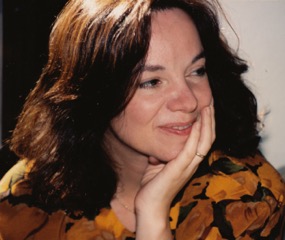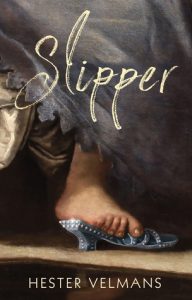On Being Read: Shelf Life
SHELF LIFE
Back in the days when I thought it would be a cinch
to command a print run of, say, thirty thousand,
I used to dream of being read, dozens of readers
dawdling over every inch, dallying
with each irresistible insight.
I thought of our intercourse
as a fertile two-way street,
spurring us all onto a higher
plane of understanding. You,
reader, would
root for me, and I, purring, would give you my all —
deposit it humbly at your feet, or at
your local library.
I wondered if there would be an electric spark,
a charge
for every profitable connection made
between my promiscuous brain
and yours;
a morse-code in the dark, winking on, off —
a wild firefly cotillion.
Being read would reveal
how many soul mates I had in the world.
I’d be pelted with flowers,
sent stricken fan letters,
quoted profusely,
invited to speak to your assemblies.
I’d never be alone again. Ah,
but how could I, a virgin author,
be expected to know better? Uncracked,
untouched, not even a blip
on the literary radar screen,
I had only my daydreams to go on.
As I sat there at my desk, smitten with
some piece I had just written,
it seemed impossible that
there might not be any takers for
the fresh, ingenious thoughts I had
to offer.
One fine day, having penned that final line,
I would read it over
one last time as the public
hovered with bated breath. And then,
still clammy and glistening with the
sweat of my brow,
I would emerge from my cell
and step out into the world.
I’d be delivered of my first book, and
there would be such a stir, such rapture,
such a rush to whisk me away
into the literary pantheon,
that I would never be alone again.
The dawning has been slow.
I can now see reality
snoring in the second row; I mean, my first is still
waiting in the wings
hoping for a chance to be pushed onto the stage,
but now it has siblings crowding behind,
just as eager to have a go.
I worry about this: what if
one of the others,
younger in age but
more savvy and bold, were
to elbow its way in ahead
of my first-born? Which
would then be ‘first’?
I try not to think of my plucky
bundles, sent
out into the world in all
feckless innocence, only
never to be returned or even
stamped with the courtesy of a reply.
Some, to be sure,
did find their way home eventually,
sordidly stained,
hustled by agents who
courageously stuck their
necks out for a while
but had to give up on me in the end.
Still alone,
an old maid now, my works
wallflowers wilting on the shelf,
I am drained
of the old illusions.
Posthumous perhaps,
but in this lifetime? Not a chance in hell.
Oh, but deal with it!
Reality check:
Who wants to have her words niggled at
by cocky copy-editors, her choices derided
by a sullen jury, her meaning misunderstood —
— a target of puzzlement,
heckling, contempt, offense,
boredom, indifference
or fury?
For I know now that being read is not enough.
It needs to be done
with dedication, and with pleasure. And
being read with pleasure is not enough, there
has to be a concrete response, a positive
affirmation.
And a positive response is not enough,
it has to come from someone you respect,
because what do most people know
anyway.
Even a positive response from
someone you respect is not enough,
since you can never be sure if it is quite
sincere.
Who wants to be parachuted
around the globe anyway,
cloned creepily a thousand times over
like Charlotte’s offspring,
each squiggly thing vulnerable to
harm and neglect?
A single pristine volume hung
on the wall of some hushed museum
suddenly seems a
more sensible option. Look
but don’t touch, it ought
to read in red letters:
No yawning
No snickering
Not to be left out in the rain
Not to be read in the john
And never
ever to be remaindered for a dollar
ninety-eight.
So let me state it here,
for the record:
Being published isn’t for me. You can keep
your three-martini lunches at the
Four Seasons, your
five-city book tours, your
six-figure advances. Phooey
to your oohs and your Oprahs,
your bouquets and your Charlie Roses.
Don’t even try to woo me with Pulitzer
prizes or teaching posts, a
by-line or fame beyond my crudest
dreams. Honestly, it’s not my thing.
I’m sure I’ll
get along
fine
without it
—
 Hester Velmans is a novelist and translator of literary fiction. Born in Amsterdam, she had a nomadic childhood, moving from Holland to Paris, Geneva, London and New York. After a hectic career in international TV news, she moved to the hills of Western Massachusetts to devote herself to writing.
Hester Velmans is a novelist and translator of literary fiction. Born in Amsterdam, she had a nomadic childhood, moving from Holland to Paris, Geneva, London and New York. After a hectic career in international TV news, she moved to the hills of Western Massachusetts to devote herself to writing.
Hester’s first book for middle-grade readers, ‘Isabel of the Whales,’ was a national bestseller, and she wrote a follow up, ‘Jessaloup’s Song,’ at the urging of her fans. She is a recipient of the Vondel Prize for Translation and a National Endowment of the Arts Translation Fellowship. For more info, visit her website at Hestervelmans.com.
Follow her on Twitter @HesterVelmans
About SLIPPER
 Meet the woman who inspires the author of the world’s most famous story: Lucinda, a penniless English orphan, is abused and exploited as a cinder-sweep by her aristocratic relatives. On receiving her sole inheritance—a pair of glass-beaded slippers—she runs away to France in pursuit of an officer on whom she has a big crush.
Meet the woman who inspires the author of the world’s most famous story: Lucinda, a penniless English orphan, is abused and exploited as a cinder-sweep by her aristocratic relatives. On receiving her sole inheritance—a pair of glass-beaded slippers—she runs away to France in pursuit of an officer on whom she has a big crush.
She joins the baggage train of Louis XIV’s army, survives a horrific massacre, and eventually finds her way to Paris. There she befriends the man who will some day write the world’s best loved fairy tale, Charles Perrault. There is much more: a witch hunt, the sorry truth about daydreams, plus some truly astonishing revelations, such as the historical facts behind the story of the Emperor’s new clothes, and a perfectly reasonable explanation for the compulsion some young women have to kiss frogs. This is not the fairy tale you remember.
Category: Contemporary Women Writers, On Writing
























